September 03, 2019
MMOS API SDK C++ and Unreal editions available
To make integration of citizen science with videogames easier, we released two further language versions of the MMOS API SDK.
Specific Challenge:
The software games business is growing fast. Its technological and methodological underpinnings have been laid down in years of research and development. At a significantly lower scale, they are now finding their way into non-entertainment contexts, helping deliver substantial benefits, particularly in education, training, research and health. Recent European research projects have identified comprehensive roadmaps and are creating resources and state-of-the-art knowledge for European players to develop applied games more easily, faster and more cost-effectively. The challenge is to mainstream the application of gaming technologies, design and aesthetics to non-leisure contexts, for social and economic benefits. Supporting the expansion of applied gaming and gamification will not only create new solutions and methodologies to address societal issues, but it will also help SMEs to seize new business opportunities.
Scope:
Technology transfer through small scale experiments on developing and validating open gaming technologies and mechanics including from sectors other than the gaming industry into non-leisure situations and scenarios for training and motivational purposes. Actions shall integrate contributions from game developers, researchers from social science disciplines and the humanities, publishers, educational intermediaries and end-users. Activities shall include work on gaming technologies (augmented and mixed reality, 3D audio and video, virtual worlds, interactive storytelling, narratives, modelling and data, etc.), learning and behavioural triggers (pedagogical effectiveness, engagement, creativity, collaborative behaviours, proactive) and social science aspects (potential risks and challenges, privacy, gender and ethical issues etc.).
The Commission considers that proposals requesting a contribution from the EU of about EUR 1 million would allow this area to be addressed appropriately. Nonetheless, this does not preclude submission and selection of proposals requesting other amounts.
Expected Impact:
Increased take up of gaming technologies in non-leisure contexts – and specifically in education and for social inclusion, measured by the number of new businesses and applications generated by the action.

This project has received funding from the European Union’s Horizon 2020 research and innovation programme under grant agreement Nr 732703
Using gaming technologies for a better world

The citizen science engine that we call MMOS Platform is the core of the GAPARS proposal. The MMOS Platform is the technology that connects science and games, it stanfdardises problems and data to form a unified interface for game developers.
Game developers will be provided with a portal, where they can test integration with the MMOS Platform services and hands-on sample datasets from research. On top of that we will provide developers with ready made modules for major game engines and coding languages. Integration with the MMOS Platform should be a piece fo cake.
It is also important that researchers can have instant access to the citizen science results. Throught the Researcher Portal they will have the possibility to monitor the progress of teh project and intervene if necessary.
We not only provide a framework, but want to show future partners that it works in live environments, that's why we carry out small scale experiments. Some of them will hopefully be even large scale...
A big part of the project is to understand certain elements of the process, the educational triggers, social aspects. There is a heavy emphasis in the project to not only provide a state-of-the-art service, but also to gain a deeper understanding of why is it working.
And we are continuousy planning to share and communicate about the results. Follow it here, on the project website.
Here you can find the available public resources created / improved in the GAPARS project.
EU Cordis Project Factsheet where you can check all administrative information of the project as well as access the deliverables.
MMOS Developer Portal is the public interface for game developers to reach the MMOS API sandbox environment. It is a service that lets developers manage their API access and also to have access to sample scientific datasets to experiment with. It gives developers an idea on the technological challenges of such an integration and helps in estimating the resources needed.
MMOS SDK Javascript, Java, C#, C++ and Unreal C++ editions. The SDKs give developers easy access to the MMOS API by providing an abstraction layer and encapsulating the authentication modules. Using the MMOS Developer Portal and the SDKs makes integration of citizen science with games a breeze.
MMOS Platform: the core element of the project is the online service we call MMOS Platform. It is a cloud based service connecting scientific research and videogames. It is an already existing service that has proven to serve to be able to handle the heavy-load, and the tens of millions of classifications submitted by EVE Online players in Project Discovery. In GAPARS we improved this service and with additional features create a state-of-the-art citizen science engine for videogames.
MMOS API: the beating hart of the MMOS Platform, that on one side accepts data and standardizes both data, metadata and the problem types that come from scientific research. On the other side it provides game developers an API, that gives easy access ti citizen science tasks and takes care of the heavy-lifting of oll citizen science related issues - so game developers can focus in creating engaging and entertaining experiences. As additional components, we plan to launch Developer Portal, a Researcher Portal and other supporting modules for further easing the process of integrating citizen science into games.
Project Discovery Exoplanets: an important goal of the GAPARS consortium is to showcase the technology in live nevironments as small scale experiments. One of these is Project Discovery Exoplanets, which actually became one of the biggest citizen science projects of all time. If you are interested download the EVE Online client and start classifying lightcurvs of stars. Listen to Professor Michel Mayor why you should help this project.
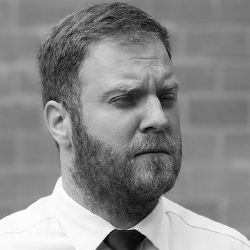
CTO at MMOS
MMOS is a Swiss company founded in 2015. The company was created by Attila Szantner (CEO) and Bernard Revaz with the mission to provide citizen science stakeholders with game changing solutions for collaborative science, crowd sourcing, and gamification.

Assistant Professor at University of Geneva
Consumer Decision and Sustainable Behavior Lab, University of Geneva - Combining theories and methods from psychology, affective sciences, behavioral economics, and neuroscience, the group investigates the role of factors such as values, emotions, cognitive heuristics, and implicit biases in the domain of energy consumption. Laboratories equipped with computers for pilot testing and behavioral experiments are available in Tobias Brosch’s Lab at the Department of Psychology and at the Swiss Center for Affective Sciences, University of Geneva. Advanced psychophysiological facilities are available at the Brain and Behaviour Laboratory, University of Geneva.

Professor at University of Amsterdam
The UvA (1632), with more than 30,000 students, just under 5,000 staff and a budget of almost 500 million euros, ranks amongst the largest comprehensive universities in Europe. It is one of the leading research universities in the world, ranked 58th in the 2016 World University Ranking by Times Higher Education (THE), and 55th in the 2015 QS World University Rankings.The UvA was involved in over 200 FP7 projects, of which it coordinated 40. In the current H2020 program already 50 projects with UvA involvement were awarded, of which the UvA coordinates about 50%
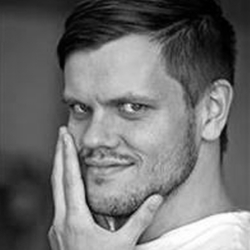
Development Manager at CCP
CCP was founded in 1997 in Reykjavik, Iceland. With the launch of EVE Online in May 2003 CCP established itself as one of the most innovative companies in interactive entertainment, winning numerous awards and receiving critical acclaim worldwide. Since then, CCP has dedicated itself to the development of cutting edge games. CCP is founded on the principle of pushing the envelope and breaking new ground on all levels. Nowhere is this more evident than in our pioneering work in virtual reality, which we think will play an increasingly important role in gaming, and beyond, in the years to come.
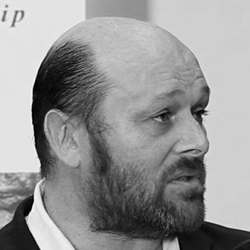
Director of Vigie-Nature at Muséum National d'Histoire Naturelle, Paris
The Muséum National d’Histoire Naturelle (MNHN) is one of the world’s major natural history institutions and contributes to the knowledge and conservation of biodiversity through research, higher education, training, and conservation of reference collections, as well as providing expertise to the French and European government for environmental policies. It is recognized as a center of excellence due to its publications (more than 600 articles in ISIlisted journals, and 400 in book chapters or conference proceedings per year) and international prizes awarded to its scientists.

Director Cell Atlas, Associate Professor in Cell Biology Proteomics at KTH
The Human Protein Atlas (HPA) is a Swedish research program aimed to characterize the spatial distribution of the human proteome using antibodybased proteomics. The main organizational site for the HPA project is the Royal Institute of Technology (KTH). The main objective for the HPA is to create a curated database with information about the spatial distribution of all human proteins (www.proteinatlas.org)
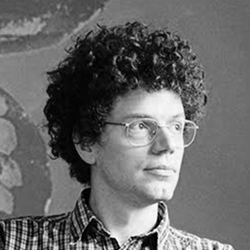
Professor at Muséum National d'Histoire Naturelle, Paris
The Muséum National d’Histoire Naturelle (MNHN) is one of the world’s major natural history institutions and contributes to the knowledge and conservation of biodiversity through research, higher education, training, and conservation of reference collections, as well as providing expertise to the French and European government for environmental policies. It is recognized as a center of excellence due to its publications (more than 600 articles in ISIlisted journals, and 400 in book chapters or conference proceedings per year) and international prizes awarded to its scientists.
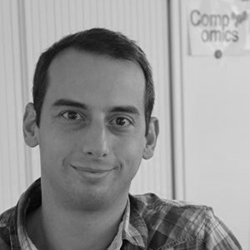
Full Professor at UGent, Group Leader at VIB
VIB is a top class centre of excellence with more than 1200 researchers and technicians involved in 74 research groups, carrying out research in the frontline of life science. The VIB Computational Omics and Systems Biology (CompOmics) group headed by Prof.Dr. Lennart Martens has been a pioneer in the creation of an entire data sharing ecosystem in the field of mass spectrometry based proteomics, including a leading role as the creator of the PRIDE repository at EMBLEBI, and its establishment as the worldleading repository for mass spectrometry based proteomics data within the ProteomeXchange consortium. The CompOmics group has also contributed substantially to the development of standard formats and related software libraries in this field over the past several years through highly active roles in the Human Proteome Organisation’s Proteomics Standards Initiative (HUPOPSI)

Managing partner & Co-founder at MMOS
MMOS is a Swiss company founded in 2015. The company was created by Attila Szantner (CEO) and Bernard Revaz (Managing partner) with the mission to provide citizen science stakeholders with game changing solutions for collaborative science, crowd sourcing, and gamification.
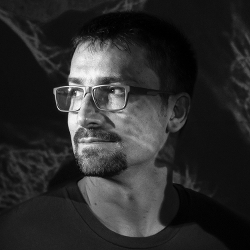
CEO & Co-founder at MMOS
MMOS is a Swiss company founded in 2015. The company was created by Attila Szantner (CEO) and Bernard Revaz (Managing partner) with the mission to provide citizen science stakeholders with game changing solutions for collaborative science, crowd sourcing, and gamification.
GDC 2017 - Project Discovery - Lessons From Scientific Research via EVE Online
"Project Discovery was launched exactly one year ago during GDC. Since then it became one of the biggest citizen science efforts of 2016, generating over 20 million protein location classifications by players of EVE Online, and receiving worldwide recognition in high-profile scientific journals like Nature Methods and also in the mainstream press - The New Yorker, the Wall Street Journal, Wired, Independent, Neue Zürcher Zeitung and many other journals. Come and hear about the story of the first year, the results and future plans. Get inspired and see how your own game can contribute to science and a better world."
Ludicious 2017 - Project Discovery - Enters Citizen Science
"Project Discovery is the first implementation of the concept Massively Multiplayer Online Science. It is a joint effort of EVE Online, MMOS and the Human Protein Atlas to bring real life science into major computer games as a seamless gaming experience. It is the first serious game implemented inside a AAA video game and a perfect example of the blurred boundaries between serious and leisure games. Come and hear about the results and the future plans."
Swissnex Gaming Tour India 2016
"swissnex India brings an exciting mix of striking creativity and cutting edge technology in Gaming Tour India 2016 to be held between 7th to 12th November 2016 in Bangalore and Hyderabad. The tour will give the participants an overview of the gaming industry in India and the opportunity to network with key knowledge partners. In addition to the visits to gaming studios, startup companies and gaming/ design schools in Bangalore and Hyderabad, they will also have a chance to be a part of the NASSCOM Game Developer Conference 2016, India’s largest, and best known, conference for game developers."
Must read
29 May 2019 - Simon Benateau a depuis peu rejoint l'équipe de Vigie-Nature dans le cadre de sa participation au projet européen GAPARS. Sa mission consiste à développer une nouvelle interface qui vous permettra d'analyser directement vos observations. Une petite révolution pour les sciences participatives... >>>
21 August 2018 - Citizen science, which asks the public to help out science projects, has produced some spectacular successes. But finding a way to grab and maintain hold of the public's attention can be a challenge. That has led to a number of projects that turn the science challenge into a game, finding ways of making a "win" into scientific progress. But scientists have also figured out ways of hijacking existing games, including using pre-existing fan bases that recruit players through in-game rewards. Now, there's a progress report on an effort to turn EVE Online players into cell biology experts. Thanks to some in-game rewards, more than 300,000 players contributed roughly 33 million calls on where in a cell a protein was located. This not only greatly expanded a public database of information on proteins, but it enabled the researchers to better train a neural network to do the same thing. >>>
26 January 2018 - A MESSAGE FROM FRANÇOIS BOUCHY, MAXIME MARMIER AND OLIVER TURNER – MEMBERS OF MICHEL MAYOR’S TEAM IN SWITZERLAND. In July 2017, all 176,802 light curves obtained by the CoRoT space mission were injected into EVE Online with the aim of detecting new transiting exoplanets. At the astronomy department of the Geneva University, a first analysis of the 44.4 million classifications provided by 77,709 players in 190 days is underway. This is a staggering number of classifications; for comparison, the Zooniverse Galaxy Zoo Project received 50 million classifications during its first year. Hundreds of light curves, previously thought to have no transits, have been identified by the pilots of EVE Online as new transit candidates with a very high consensus. It is important to note that a high consensus does not mean the events are new planets. So, these new events are presently being analyzed in more detail by the astronomers of Geneva University and cross-checked with other astronomical databases. >>>
17 April 2017 - Showing that algorithms are often no match for human vision, players of EVE Online will sift through satellite imagery in a vast citizen science hunt for exoplanets. This June the University of Geneva will launch the largest citizen science project yet conceived, enlisting hundreds of thousands of video gamers in the search for undiscovered exoplanets. The project will be launched in EVE Online, a video game set in a fictional galaxy that players tour in spaceships as they compete for resources and dominance of virtual territory. >>>
22 February 2017 – Reykjavik, Iceland - CCP Games today announced that the search for planets outside our solar system (AKA exoplanets) will come to their massively multiplayer online game EVE Online. This unique scientific crowdsourcing effort represents a collaboration between CCP developers, Massively Multiplayer Online Science (MMOS), Reykjavik University, and the University of Geneva and its honorary professor Michel Mayor, winner of the prestigious 2017 Wolf Prize for Physics and discoverer of the first exoplanet. >>>
Articles, talks
Events - talks, seminars, workshops, posters and participation

September 03, 2019
To make integration of citizen science with videogames easier, we released two further language versions of the MMOS API SDK.

July 24, 2019
We are proud to share the announcement of Genome Québec about the support of our new project.
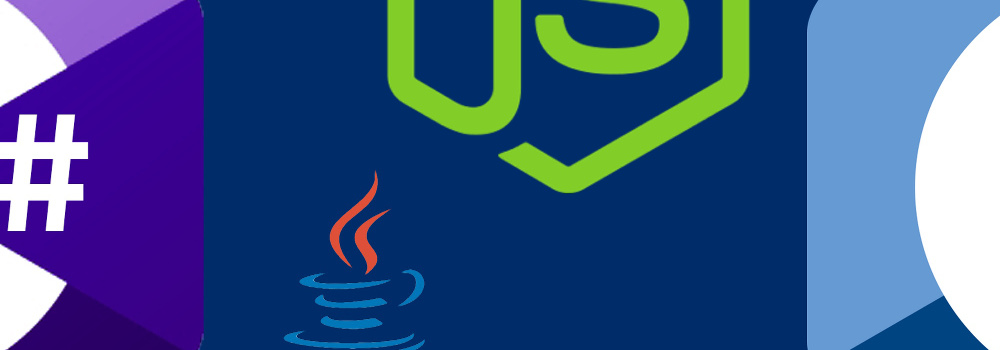
June 29, 2019
To make integration of citizen science with videogames easier, we released several language versions of the MMOS API SDK.

June 25, 2019
We are happy to announce that the MMOS Developer Portal is publicly available from now on. Come and play in the game developer sandbox to see how you can integrate citizen science in games.

June 07, 2019
In June we had a series of meetings with our external consortium partners in Canada discussing future plans.
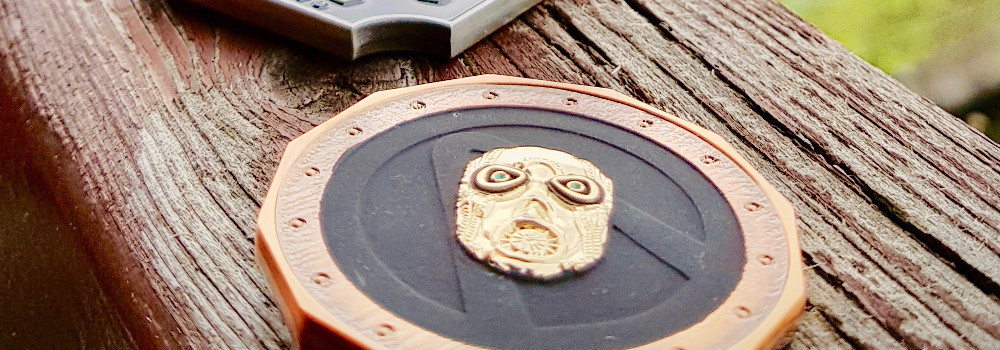
May 11, 2019
We were happy to welcome Gearbox for a couple of days in Switzerland.
Rte de l’Ile-au-Bois 1A c/o BioArk, Monthey
CH-1870, Switzerland
Copyright Notice
EVE Online and the EVE logo are the registered trademarks of CCP hf. All rights are reserved worldwide. All other trademarks are the property of their respective owners. EVE Online, the EVE logo, EVE and all associated logos and designs are the intellectual property of CCP hf. All artwork, screenshots, characters, vehicles, storylines, world facts or other recognizable features of the intellectual property relating to these trademarks are likewise the intellectual property of CCP hf. CCP hf. has granted permission to MMOS to use EVE Online and all associated logos and designs for promotional and information purposes on its website but does not endorse, and is not in any way affiliated with MMOS. CCP is in no way responsible for the content on or functioning of this website, nor can it be liable for any damage arising from the use of this website.
Images are used from the Human Protein Atlas.
A big thank to Pawel Kadysz, Dmitri Popov, Sergei Zolkin, Talia Cohen, Luis Llerena,Lorenzo Herrera and the Unsplash community for the Creative Common licenced images. Also to Ken Lund for sharing the photos on Flickr under Creative Commons.
CITIZEN SCIENCE FOR SERIOUS GAMERS
© 2014-19 MMOS - GAPARS. All rights reserved.